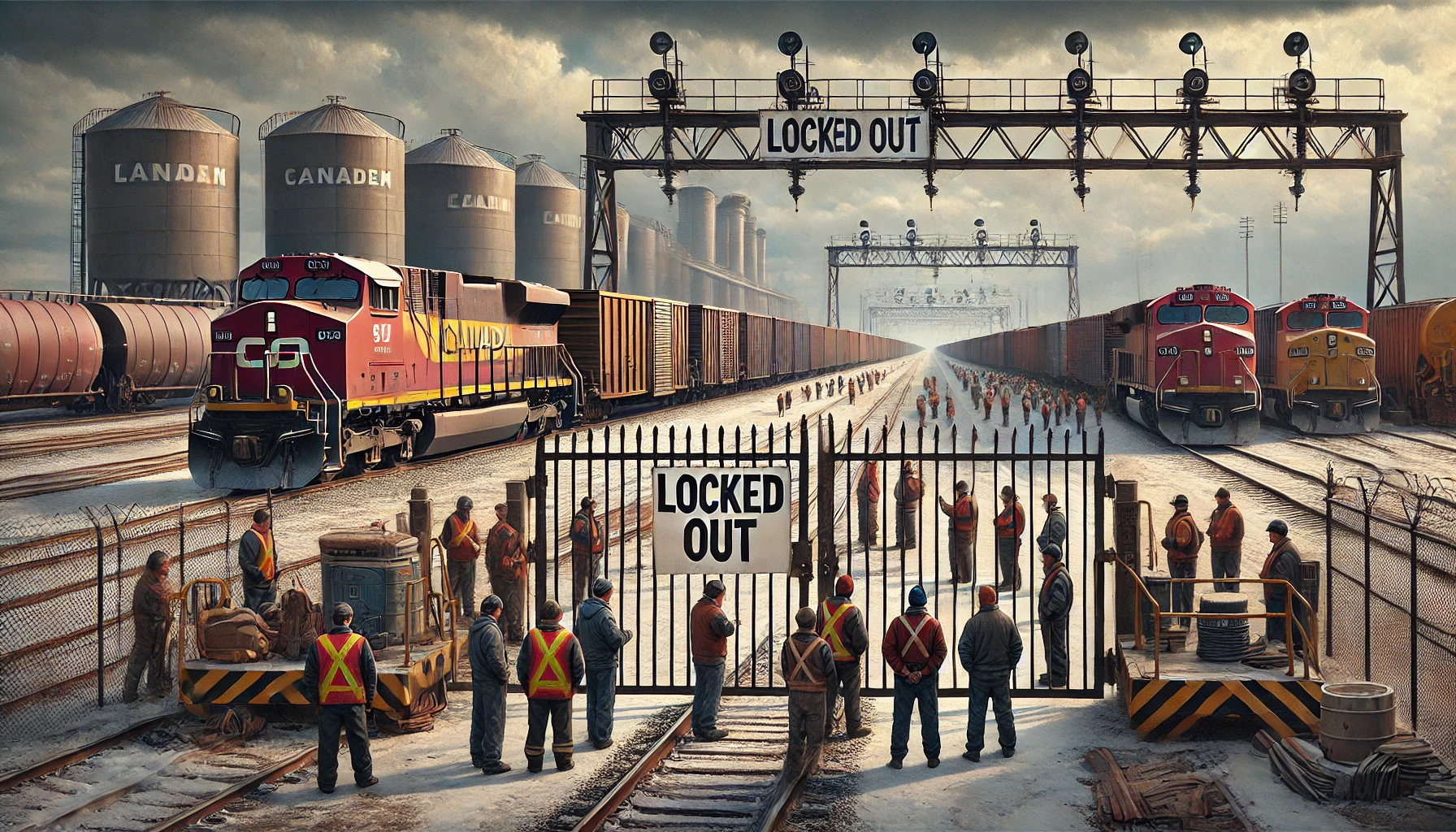
22 Aug CN Locks Out Employees Amid Ongoing Labor Dispute with Teamsters Canada Rail Conference
CN has officially locked out employees represented by the Teamsters Canada Rail Conference (TCRC) as of August 22 at 12:01 AM ET. The decision follows the union’s lack of response to a final offer from CN, which aimed to prevent a labor disruption.
CN’s final offer included improved wages and a proposal to reduce the number of workdays per month by aligning service hours in the collective agreement with federally mandated rest provisions. Additionally, CN proposed a pilot project introducing hourly rates and scheduled shifts on a portion of its network, advocating this approach as a more predictable and beneficial framework for its employees.
With no agreement in place and the union rejecting binding arbitration, CN has proceeded with a safe and orderly shutdown, resulting in the lockout.
Over the past nine months, CN has engaged in good-faith negotiations, consistently presenting serious offers that included better pay, improved rest periods, and more predictable work schedules. However, the Teamsters have shown little urgency or willingness to reach an agreement that would benefit employees, the company, and the broader economy.
CN is urging the Teamsters to approach these negotiations with the urgency and importance that the situation demands.
Current Rest and Wages
- Rest: Conductors and locomotive engineers currently work approximately 160 days per year, factoring in Duty and Rest Period Rules (DRPR), paid sick days, personal leave days, and existing rest and vacation provisions within their collective agreements.
- Wages: In 2023, the average conductor earned approximately $121,000, excluding pension and medical benefits. The average locomotive engineer earned approximately $150,000, also excluding pension and medical benefits.
Background on 2024 Negotiations and Offers
In January, CN proposed a modernized agreement that enhanced safety, wages, and work/life balance while protecting existing rights. This offer was rejected by the TCRC.
In April, CN improved the offer, emphasizing higher wages ($75/hour for Locomotive Engineers and $65/hour for Conductors), job security, and guaranteed earnings. This offer was also rejected.
By May, CN presented a simplified offer within the framework of the existing collective agreement, which included better wages and more predictable days off. The TCRC once again declined the proposal.
With negotiations stalled, CN offered to submit to binding arbitration in June. Binding arbitration involves an independent arbitrator, mutually agreed upon by both parties, who determines the terms of a settlement. This impartial process could have resolved the dispute while avoiding significant disruptions to supply chains, Canadian consumers, and the economy. However, the TCRC rejected this offer as well.
CN remains committed to reaching a fair and equitable agreement and encourages the TCRC to return to the negotiating table with a renewed focus on achieving a resolution.

